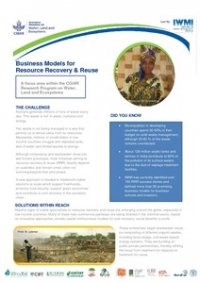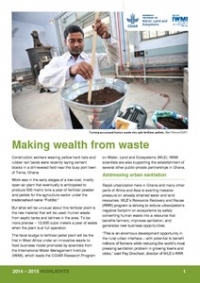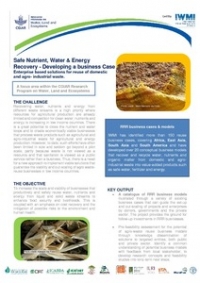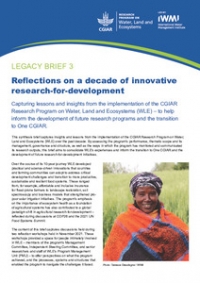Originally published as an Op-Ed on GreenBiz, republished here with minor edits. Based on the book Resource Recovery from Waste, available for download or hard-copy purchase.
The phrase “fecal sludge business model” probably doesn’t evoke an image of something you’d like to wade right into. But if you’re a business who’s ignoring waste management you might just be missing out on the next big business opportunity – and a way to solve a growing global crisis.
As we mark Earth Overshoot Day this week, the global population is surging toward eight billion. And with it, food production, businesses and households add ever bigger mountains of organic waste to the planet. What’s special about organic waste is that it is rich in nutrients, water and energy that can be recovered to power our economies and grow our food. For savvy businesses -- both large and small -- that waste is packed with potential wealth.
For social entrepreneurs and governments, wealth-from-waste business ideas may be a source of income, but can also help solve social and environmental problems. Currently, especially in developing countries, much of our waste is abandoned to the environment, polluting drinking water, dangerously overflowing landfills or septic tanks or dirtying public spaces. Often the waste is burned, choking up local air and releasing carbon. Growing urban centers are screaming for waste management solutions. And with food needs rising and water resources falling, farmers around the world are struggling to irrigate their land. Many turn to untreated wastewater, creating serious health risks across Asia, Africa and elsewhere.
So you want to solve these problems and make money while doing so? Pulling together years of research, WLE and International Water Management Institute (IWMI) scientists’ new book Resource Recovery from Waste profiles business models based on real-world cases. Each model is scalable and served up for cutting-edge entrepreneurs or the public sector to swoop in to innovate and expand.
While conventional waste projects depend on subsidies, there are hopeful signs emerging of increasing cost recovery and profitability. From Spain to Sri Lanka, Mexico to Morocco, these models are rolling out and recovering cash.
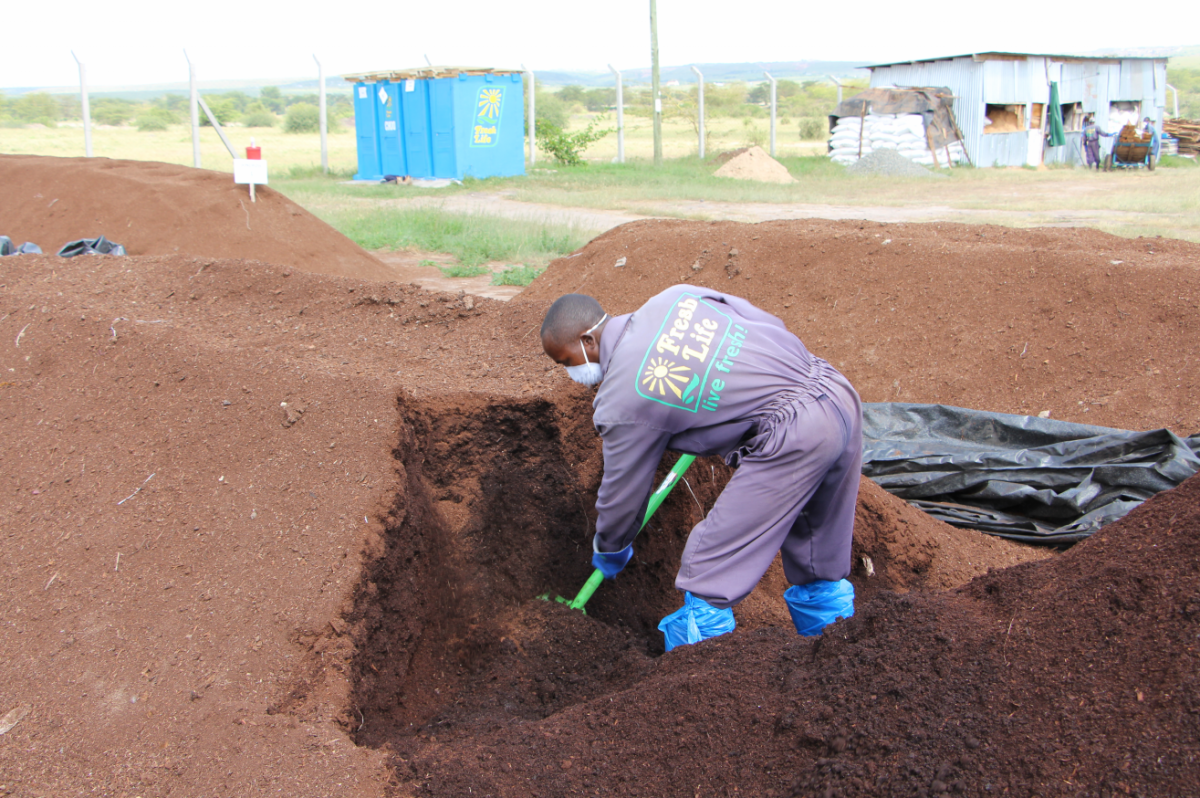
Here are just four potential ways to make wealth from waste:
1. Subscription sludge removal: Much of the world have no flush toilets, so they use home-made pit latrines. Once the pits are full, households often dump the “fecal sludge” in their own backyards or nearby environments. So markets exist for sludge removal, especially as governments see the health and economic benefits. If it can be offered on a subscription basis as we’ve seen in Bangladesh, companies can sell the sludge to treatment plants, where it can be processed into biogas or compost. There are a whole range of business models to make salary from septage.
2. Pelletized sludge: Once collected, it’s relatively cheap to turn fecal sludge into safe fertilizer pellets for farming. Mixed with other organic waste, the process creates rich fertilizers that can boost crop yields and return nutrients and carbon to the soils – all while decreasing waste dumping. Our researchers in Africa are investigating techniques to make the fertilizer rich in nutrients but cheap in cost – ready for a range of business innovations.
3. Post-digestion gas: Heaps of food waste is created every day by factories, slaughterhouses, restaurants and citizens. This organic waste can be fed into a machine called a bio-digester, which transforms it into bio-gas energy. The machines are affordable enough to be sold to food producers for their own energy needs. Or private suppliers can install and operate the digesters then sell the biogas back to the institution or to third party customers – as business is starting to do in Bangalore.
4. Peachy-clean wastewater: Untreated wastewater creates hazards for communities and nature, but it is also an untapped resource. Treatment technology is getting cheaper, and businesses and cities can clean wastewater and sell it back to farmers and agribusiness for irrigation. Egypt and Tunisia are doing just that – treating water to irrigate peach, olive and lemon trees. Projects in Iran and Spain are even formalizing “water swaps,” where companies treat wastewater then sell it back at reduced costs to farmers in exchange for freshwater rights. And barely a drop gone to waste. Many informal swaps already take place – can new enterprises formalize and innovate?
Our research has been assessing the value chains, profitability, risks and regulatory environments of dozens of these models around the world. Wealth-from-waste business ideas are ready to be adapted, through savvy local and international enterprises or public-private partnerships.
The world’s population is growing, and piles of waste are rising with it. But the world shouldn’t waste waste. Slowly businesses and governments are recognizing the potential profitability of wastewater, food waste and fecal sludge. Are you ready to wade in?
IWMI/WLE scientists Miriam Otoo and Pay Drechsel edited Resource Recovery from Waste, drawing from IWMI/WLE, EAWAG, CEWAS, WHO and other research on creating business opportunities from Resource Recovery and Reuse (RRR).
Thrive blog is a space for independent thought and aims to stimulate discussion among sustainable agriculture researchers and the public. Blogs are facilitated by the CGIAR Research Program on Water, Land and Ecosystems (WLE) but reflect the opinions and information of the authors only and not necessarily those of WLE and its donors or partners. WLE and partners are supported by CGIAR Trust Fund Donors, including: ACIAR, DFID, DGIS, SDC, and others.





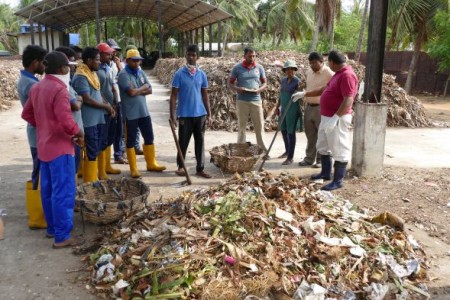
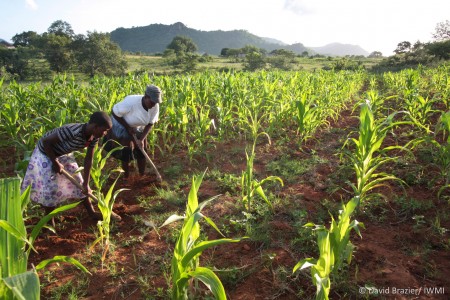





/index.jpg?itok=EzuBHOXY&c=feafd7f5ab7d60c363652d23929d0aee)


